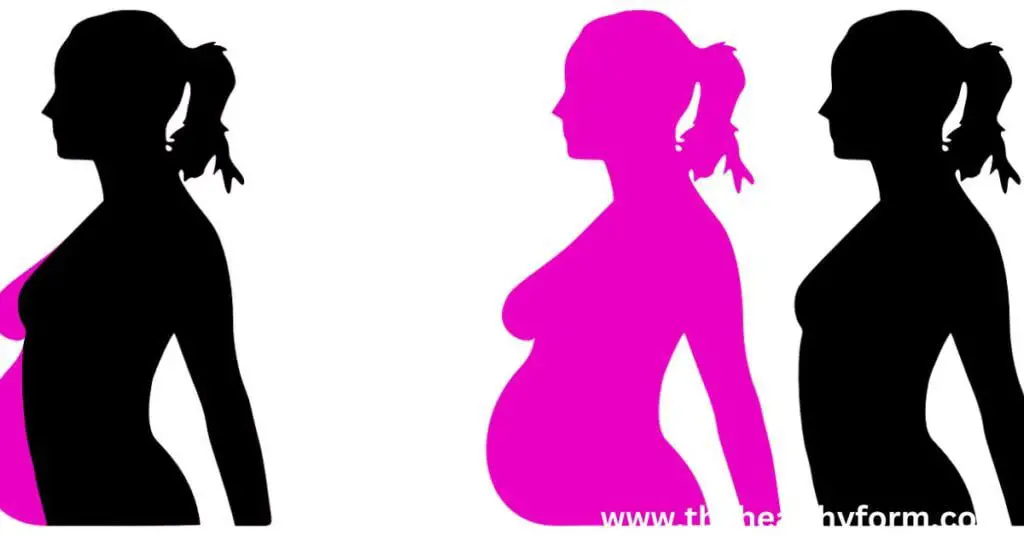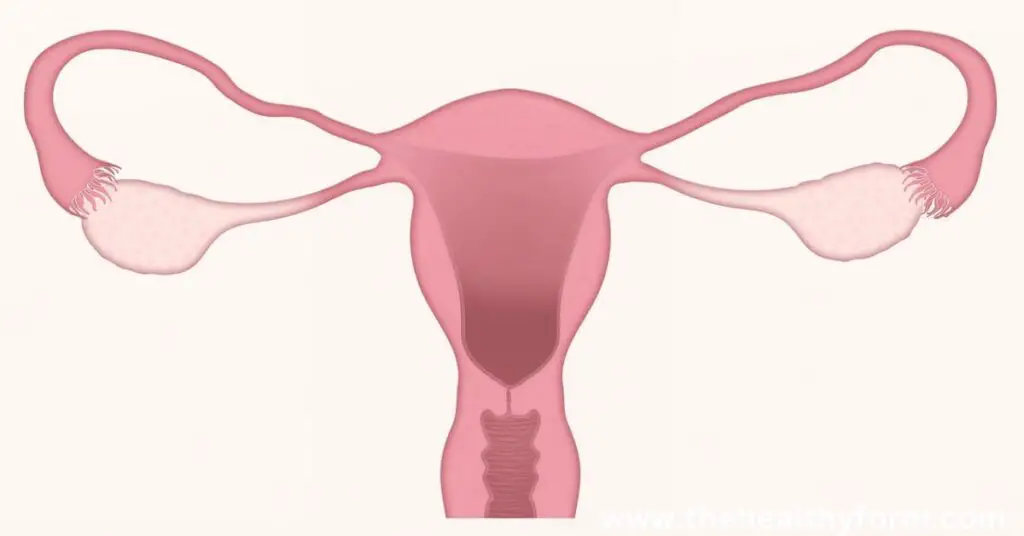10 Tips for Managing Gynecological Conditions in Women
Managing gynecological conditions in women and Learning about symptoms, treatment options, and ways to improve overall gynecological health. Stay informed and take control of your health with our comprehensive guide. Gynecological conditions refer to any health issues that affect the female reproductive system, including the uterus, the ovaries, and the fallopian tubes. These conditions can range from common and benign to more serious and potentially life-threatening. It is important for women to be aware of common gynecological conditions and to understand the steps they can take to manage and support their reproductive health.

Female reproductive health conditions
Conditions affecting the female reproductive system are called female reproductive health conditions. Many typical ailments include:
Period irregularities, excessive bleeding, painful periods, and no periods are examples of menstrual abnormalities.
Sexually transmitted infections (STIs) are illnesses that can harm the reproductive system and are communicated via sexual contact. Among the most typical STIs include chlamydia, gonorrhea, and HPV.
An infection of the reproductive organs, known as a pelvic inflammatory disease (PID), is typically brought on by bacteria acquired through sexual contact.
Endometriosis is a disorder in which tissue that resembles the uterine lining develops outside the uterus, resulting in discomfort and issues with fertility.
PCOS is a hormonal condition that can result in irregular periods, acne, weight gain, and issues with conception.
Menopause, normally between 45 and 55, is the natural end of menstruation and reproductive function.
Although the symptoms of these illnesses can vary greatly, some typical ones include stomach discomfort, unusual bleeding, mood swings, and altered sleep habits. Speaking with a healthcare professional is crucial if you have any odd or recurring symptoms of a reproductive health concern. Early detection and intervention can lessen problems and enhance results.
Gynecological disorders
The female reproductive system, which includes the uterus, ovaries, fallopian tubes, vagina, and vulva, is affected by gynecological illnesses. Many symptoms, including pain, unusual bleeding, infertility, and discomfort during sexual activity, can be brought on by these illnesses. Some gynecological illnesses are more severe and may need long-term therapy, while some are benign and readily treated.
Uterine fibroids are benign growths that can result in painful pelvic cramps and excessive menstrual flow. Endometriosis happens when the tissue that typically borders the uterus protrudes from it, resulting in discomfort and issues with conception. PCOS is a hormonal condition that can lead to weight gain, irregular periods, and acne. In the ovaries, fluid-filled sacs called ovarian cysts can develop and cause pain and discomfort.
Additional gynecological conditions include uterine prolapse, cervical dysplasia, vaginal infections, and pelvic inflammatory disease. Many variables, such as hormone imbalances, infections, heredity, and lifestyle choices, might contribute to the development of these disorders.
You must consult a doctor if you have any gynecological symptoms or worry about your reproductive health. Your healthcare professional can do a physical examination, request testing, and suggest suitable therapies based on your diagnosis. Gynecological problems treated early on can reduce complications, enhance general health, and enhance the quality of life.
Women’s reproductive health issues
Reproductive health issues can affect women of all ages and can have a range of causes, such as hormonal imbalances, infections, and underlying medical conditions. These issues can significantly impact a woman’s physical and emotional well-being and her ability to conceive and carry a pregnancy to term. It is important to consult with a healthcare provider if you have concerns about reproductive health issues.

Common gynecological conditions in women
Medical diseases affecting a woman’s reproductive system are called gynecological conditions. These ailments can cause anything from slight pain to serious health issues. The following are some of the most prevalent gynecological problems in women:
Period irregularities: Hormonal imbalances, stress, and certain medicines are just a few causes of irregular menstrual cycles. Missed periods, significant bleeding, or uncomfortable cramping may be symptoms.
Fungi, viruses, or bacteria can bring on gynecological infections. Yeast infections, bacterial vaginosis, and sexually transmitted infections (STIs), such as chlamydia and gonorrhea, are examples of common diseases.
Reproductive problems: Polycystic ovarian syndrome (PCOS), endometriosis, and age-related variables can all affect a woman’s ability to conceive. One or more symptoms might be difficulty getting pregnant or keeping a pregnancy.
Menopause: Menopause is the phase of a woman’s life when her reproductive years end. Hot flashes, mood swings, and vaginal dryness are just symptoms.
Ovarian cysts, fibroids, and pelvic inflammatory disease are further gynecological diseases that women may face (PID). To obtain an accurate diagnosis and treatment, you must consult a doctor if you encounter any worrisome symptoms connected to your reproductive health.
Gynecological health problems
Every medical illness impacting the female reproductive system is called a gynecological health issue. The severity of these disorders and how they affect a woman’s health might differ greatly. The following are some typical gynecological health issues:
Menstrual disorders: These are illnesses that interfere with a woman’s menstrual cycle, causing things like excessive bleeding, unpleasant cramps, and irregular periods.
Gynecological conditions include endometriosis, ovarian cysts, and pelvic inflammatory disease, commonly present with pelvic discomfort.
Infections: The vagina and other components of the reproductive system are susceptible to diseases such as bacterial vaginosis, yeast infections, and sexually transmitted illnesses.
Fibroids: Fibroids are benign growths that can form in the uterus and lead to painful, severe bleeding.
Endometriosis: This disorder, which can result in discomfort, infertility, and other issues, is marked by the growth of tissue that resembles the uterine lining outside of the uterus.
A painful and uncomfortable condition, ovarian cysts are fluid-filled sacs that can form on the ovaries.
Gynecological cancers: These include uterine, ovarian, cervix, and vulvar cancers.
Women must monitor their gynecological health and get help from a doctor if they notice any unexpected symptoms or changes. Also, routine gynecological examinations and screenings can assist in identifying any issues early on when they are frequently simpler to treat.

Reproductive health concerns in women
Reproductive health concerns are any issues that affect the female reproductive system, including the uterus, the ovaries, and the fallopian tubes. These concerns can range from common and benign to more serious and potentially life-threatening. Common reproductive health concerns in women include irregular periods, infections, fertility issues, and menopause. It is important to consult with a healthcare provider.
Gynecological conditions and treatment options
Several gynecological conditions can affect women, ranging from menstrual problems to reproductive system disorders. Some of the most common gynecological conditions and their treatment options include:
Menstrual problems: Irregular periods, heavy bleeding, and painful periods are common menstrual problems that women experience. Treatment options may include hormonal medications, nonsteroidal anti-inflammatory drugs (NSAIDs), and lifestyle changes like exercise and a healthy diet.
Polycystic ovary syndrome (PCOS): PCOS is a hormonal disorder that can cause irregular periods, acne, and excess hair growth. Treatment options may include hormonal birth control, medication regulating insulin levels, and lifestyle changes such as weight loss and exercise.
Endometriosis is when the uterine lining tissue extends outside the uterus, causing pain and infertility. Some possible treatment choices are NSAIDs or hormonal birth control pills for pain management, tissue removal surgery, or, in extreme situations, a hysterectomy.
Pelvic inflammatory disease (PID): A bacterial illness that affects the reproductive organs and can cause infertility. PID affects the pelvic region. Usually, antibiotics are used as part of the treatment to eradicate the infection.
Non-cancerous growths that appear in the uterus are known as uterine fibroids. Aside from surgery to remove the fibroids, treatment options may include hormone therapy or medication to manage symptoms.
Menopause: Menopause signifies the end of a woman’s fertile years and can result in symptoms including hot flashes, mood swings, and a dry vagina. Hormone replacement therapy, drugs to treat symptoms, and dietary and lifestyle changes, including exercise, are all possible forms of treatment.
Generally, it’s critical to consult carefully with a healthcare professional to choose the best course of action for your unique gynecological issue. This could entail a mix of medicine, way-of-life adjustments, and surgical intervention.
Women’s reproductive health and wellness
Maintaining reproductive health and wellness is important for women of all ages. In addition to seeking medical treatment when necessary, many strategies can support reproductive health and wellness. These may include eating a healthy and balanced diet, regular exercise, reducing stress, and getting enough sleep. It is also important to practice safe sex and be aware of your menstrual cycle to help identify potential issues.
Managing gynecological conditions
Managing gynecological conditions may involve a range of strategies, depending on the specific condition and its underlying cause. Treatment options may include medications, lifestyle changes, surgery, or a combination. Working closely with a healthcare provider to determine the most appropriate treatment plan for your specific condition is important. In addition to seeking medical treatment, it is also important to adopt healthy lifestyle habits, such as eating a healthy and balanced diet, regular exercise, reducing stress, and getting enough sleep, to support overall health and well-being.

Female reproductive health and wellbeing
Female reproductive health and well-being are closely linked, and it is essential to support both to maintain overall health and well-being. In addition to seeking medical treatment when necessary, many strategies can support reproductive health and well-being. These may include eating a healthy and balanced diet, regular exercise, reducing stress, and getting enough sleep. It is also important to practice safe sex and be aware of your menstrual cycle to help identify potential issues.
FAQ about Managing Gynecological Conditions in Women
Here are some of the most common questions people have about managing gynecological conditions in women:
What are some common gynecological conditions that women experience?
Some common gynecological conditions include menstrual disorders, such as irregular periods or heavy bleeding, pelvic pain, ovarian cysts, endometriosis, fibroids, and sexually transmitted infections (STIs).
What are some ways to manage menstrual disorders?
Depending on the disorder, management options may include lifestyle modifications, such as exercise and diet changes, hormonal contraceptives, pain relief medication, or surgery in severe cases.
What are ovarian cysts, and how are they treated?
Ovarian cysts are fluid-filled sacs that develop in the ovaries. Most cysts are harmless and do not require treatment. However, if they become large or cause pain, bloating, or discomfort during sex, treatment options may include medication or surgery.
What is endometriosis, and how is it treated?
Endometriosis is when the tissue that normally lines the uterus grows outside, causing pain and inflammation. Treatment options may include pain relief medication, hormonal therapies, or surgery.
When should I see a gynecologist?
It’s important to see a gynecologist regularly for routine check-ups and screenings and if you experience any unusual symptoms such as abnormal bleeding, pain, or discharge.
Conclusion
Gynecological conditions are a common concern for women of all ages and can affect reproductive health and overall well-being. It is important for women to be aware of common gynecological conditions and to understand the steps they can take to manage and support their reproductive health. Treatment options will depend on the specific condition and its underlying cause, and it is essential to work closely with a healthcare provider to determine the most appropriate treatment plan. In addition to seeking medical treatment when necessary, adopting healthy lifestyle habits, such as eating a healthy and balanced diet, regular exercise, reducing stress, and getting enough sleep, can also support reproductive health and well-being.





